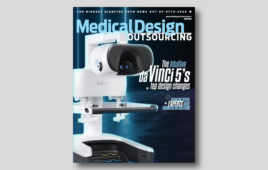
Medtronic has recalled implantable cardioverter defibrillators (ICDs) and cardiac resynchronization therapy defibrillators that may fail to deliver life-saving shocks for cardiac patients. [Photo courtesy of Medtronic]
Medtronic identified a likely design flaw that can cause defibrillator implants to halt life-saving shocks for cardiac patients.
An insulation defect appears to be to blame for Medtronic’s massive Class I recall of implantable cardioverter defibrillators (ICDs), including cardiac resynchronization therapy defibrillators (CRT-Ds).
The FDA said it has not yet determined a cause and that Medtronic is investigating. But Medtronic — the world’s largest medical device manufacturer — identified the likely problem in an urgent medical device correction notice sent to healthcare providers.
Medtronic identified 348,616 devices in the U.S. for the recall, distributed from Oct. 13, 2017 to June 9, 2023. The recall covers 120 Medtronic ICD products, including devices sold under the product lines of Amplia, Brava, Claria, Cobalt, Compia, Crome, Evera, Mirro, Primo, Visia and Viva.
These devices are designed to deliver high-voltage shocks — sometimes up to 40 joules — to correct rapid and/or irregular heartbeats known as arrhythmias, which can be fatal.
The company reported 22 injuries across 28 incidents as of July and the FDA classified the recall as a Class I, the most serious kind.
However, Medtronic is not recommending patients undergo surgery to have their devices removed and replaced. The company said the procedure’s risks — including potentially fatal infections and other complications — outweigh the “rare potential” of harm from the defect.
What’s causing Medtronic ICD and CRT-D malfunctions?
The recall covers ICDs and CRT-Ds manufactured after 2017 with a glassed feedthrough. The feedthrough is the interconnection between the inside of the hermetically sealed pulse generator and the sockets on top of the device that connect to the heart leads.
In its notice to healthcare providers in May, Medtronic laid out the conditions under which the devices malfunctioned while attempting to deliver high voltage (HV) therapy. The company warned that “significant separation of the layers of insulation materials in the feedthrough components of the device header” can cause an “unintended current pathway [to form] within the void created by the insulation separation, capable of conducting high levels of current during HV therapy.”
When that happens, it can trigger the Short Circuit Protection (SCP) safety feature, designed to truncate energy delivery during HV therapy to protect the device when an unintended current pathway is detected in the device or the lead during a shock.
If the SCP feature detects a short while the device is attempting to deliver HV therapy, the device won’t deliver the appropriate shock, if any at all. Without that shock, a patient experiencing a life-threatening cardiac event could die.
Medtronic said the problem has been observed in a particular configuration. These devices can be programmed to deliver HV therapy in biphasic electric shocks of two polarities: “B>AX” and “AX>B”, where B is the right ventricular coil and AX is the device’s active canister and superior vena cava coil.
Medtronic said the malfunction has been observed in the AX>B shock configuration, where the right ventricular coil acts as the cathode for the first phase and the anode for the second phase.
What’s the fix — and why not replace the Medtronic ICDs?
Similar Medtronic ICD recalls last year were determined to be due to device design and fixed with a software update.
For the latest recall, Medtronic has not yet said whether it will make design changes to the devices. Right now, the company is recommending patients have their implants configured with the AX>B high voltage therapies reprogrammed to B>AX.
Medtronic said the risk of mortality after reprogramming is 0.001% at 9 years, compared to a mortality risk between 0.032% and 0.043% for replacement due to the risk of complications.
Without reprogramming, Medtronic estimated a malfunction rate of 0.02% over 5 years for the more than 816,000 devices with glassed feedthroughs. That equals a mortality risk of 0.004% over 5 years, Medtronic said.
However, the malfunction rate increases to 0.48% over 5 years for patients with a history of HV therapy, equal to a mortality risk of 0.08% over 5 years.
Medtronic is asking healthcare providers to prioritize reprogramming of patients with a history of HV therapy who have devices programmed to deliver an AX>B shock as the first shock (Rx1) in a series of up to six shocks.
“Rx1 provides the greatest statistical likelihood to resolve an arrhythmia, and therefore it is important to minimize risk of a reduced- or no-energy HV therapy in the first sequence,” Medtronic said in the notice.
For any other patients whose devices are configured to deliver an AX>B shock, doctors should schedule their next follow-ups as in-person visits for reprogramming all HV shocks to B>AX.
Related: After recall and relaunch, Medtronic wants to go global with its Harmony valve




![A photo of the Medtronic GI Genius ColonPro polyp detection system flagging a potential sign of colon cancer during a colonoscopy. [Photo courtesy of Medtronic]](https://www.medicaldesignandoutsourcing.com/wp-content/uploads/2024/04/Medtronic-GI-Genius-doctors-268x170.jpg)